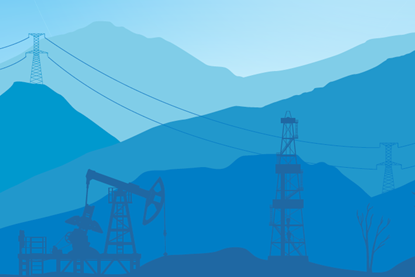Close menu
- Home
- About us
- Signatories
- News & events
-
Investment tools
- Back to parent navigation item
- Investment tools
- Introductory guides to responsible investment
- Principles to Practice
- Investment case database
- Stewardship
- Listed equity
- Fixed income
- Private markets
- Hedge funds
- Investing for nature: Resource hub
- Investing for climate: Resource hub
- Asset owner resources
-
Sustainability issues
- Back to parent navigation item
- Sustainability issues
-
Environmental, social and governance issues
- Back to parent navigation item
- Environmental, social and governance issues
- Environmental issues
-
Social issues
- Back to parent navigation item
- Social issues
- Social issues - case studies
- Social issues - podcasts
- Social issues - webinars
- Social issues - blogs
- Cobalt and the extractives industry
- Clothing and Apparel Supply Chain
- Human rights
- Human rights - case studies
- Modern slavery and labour rights
- Covid-19
- Just transition
- Governance issues
- Climate change
- Sustainability initiatives
- Sustainability outcomes
- Sustainable markets
- Research
- Policy
Issue specific stewardship guides
Converging on climate lobbying: aligning corporate practice with investor expectations
2018-05-30T11:04:00+01:00
Investors are increasingly scrutinising corporate engagement on climate policy as it plays a critical role in helping governments create practical climate policy solutions. However, corporate engagement on climate policy is a double-edged sword.
Moving the needle on responsible labour practices in the apparel industry
2017-11-01T19:03:00+00:00
The starting point for respecting human and labour rights is to understand the impact of a company’s activities on people.
Engaging on director nominations
2017-06-19T13:07:00+01:00
Director nominations and elections represent some of the most fundamental ownership rights for shareholders – namely the right to appoint and remove members of a company board to represent their interests in promoting long-term value creation.
An investor's guide to methane: Engaging with oil and gas companies to manage a rising risk
2017-02-01T14:17:00+00:00
Methane, the primary component of natural gas, is a climate pollutant 84 times more powerful than carbon dioxide (CO2) over a 20-year period, and it is responsible for 25% of the global warming we are experiencing today.
Engaging with oil and gas companies on fracking: an investor guide
2017-01-01T10:15:00+00:00
The production of oil and gas via hydraulic fracturing (fracking) remains important and yet can be viewed as a contentious method in some regions, with community controversies, bans and moratoria in different areas.
Engaging on anti-bribery and corruption
2016-06-14T14:33:00+01:00
Corruption remains one of the world’s greatest challenges. For businesses, corruption impedes economic growth, distorts competition and represents serious legal and reputational risks. The PRI provides guidance on how investors can assess and engage with investee companies to improve anti-corruption practices and reduce risks.
Why and how to engage on corporate tax responsibility
2016-03-30T15:12:00+01:00
The business case for responsible investors to explore the long-term implications of tax-related risks is multifaceted.
How to engage retailers on employee relations
2015-12-01T18:03:00+00:00
Happy employees are good for business: highly engaged employees tend to stay longer, and are more likely to be productive and provide good customer service.
Human rights and the extractive industry: why engage, who to engage, how to engage
2015-07-01T12:10:00+01:00
Extractive companies are among those companies that have the most daily impact on our lives. They have an impact on their workers, the communities located near their operations, and the people living in the operating country. They use countries’ natural resources, which ultimately belong to their citizens, and therefore need ...
Water risks in agricultural supply chains
2014-07-01T14:41:00+01:00
Global fresh water supplies have become increasingly exposed to risk as a result of both growing demand, and pressures on supply, including those linked to climate change.
- The PRI is an investor initiative in partnership with UNEP Finance Initiative and UN Global Compact.

- PRI Association, 1st Floor 20 Wood Street, London EC2V 7AF United Kingdom
- Company no: 7207947
- +44 (0)20 3714 3141
- [email protected]
-
PRI DISCLAIMER
This website and material herein is provided for information only. It is not intended to be investment, legal, tax or other advice, nor is it intended to be relied upon in making an investment or other decision. PRI Association is not responsible for any decision made or action taken based on information on this website. Visitors retain sole discretion over whether and how to use the information contained herein. PRI Association is not responsible for and does not endorse third parties featured on this website or any third party content, websites, or other resources that may be included or referenced herein. Unless otherwise stated, content does not necessarily represent the views of signatories to the Principles for Responsible Investment. All information is provided “as-is” with no guarantee of completeness, accuracy or timeliness, or of the results obtained from the use of this information, and without warranty of any kind, expressed or implied. PRI Association is committed to compliance with all applicable laws. Copyright © PRI Association 2025. All rights reserved. This content may not be reproduced, or used for any other purpose, without the prior written consent of PRI Association.
Site powered by Webvision Cloud











